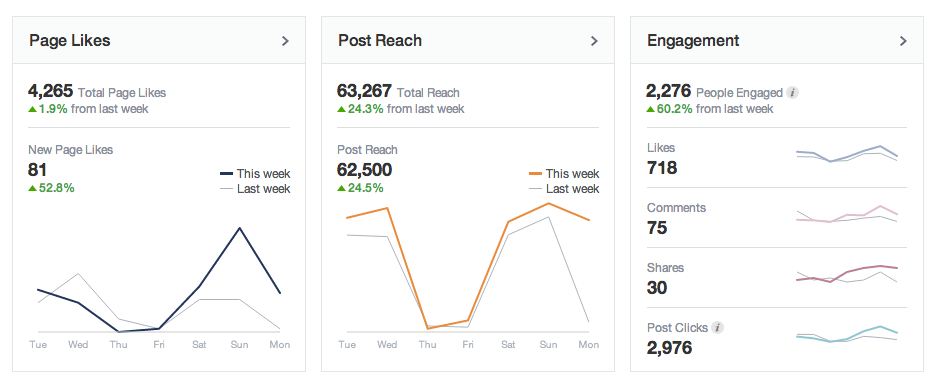Facebook's Corrected Insights May be a Red Herring for Improved Exposure for Pages
When Facebook announced last week that Insights, their page-level analytics platform, had been reporting the wrong numbers for several months, most took it as a growing pain of a company growing into its own. It was a minor negative, something that caused a handful of "Facebook advertising has a long way to go" blog posts but one that will be forgotten tomorrow (if it hasn't been forgotten already).
Put on your conspiracy theory hats, kids, as I tell you what may be really happening here.
Since Monday, the numbers have gone up as expected. In some cases, they've gone way up. Some of the pages that we manage are seeing 2X increases in post impressions, an unexpected rise considering that Facebook's reporting flaw was only affecting mobile app-based impressions not being shown while ad impressions were being counted twice. The increased numbers should have been noticeable but not that substantial. 2X is much more than anyone anticipated, particularly for pages that had been using advertising the whole time.
More importantly, engagement is way up. Without changing the strategy on any of the pages we manage, we've seen significant increases in likes and comments. This isn't a reporting issue. This means more people are seeing and interacting with the content through their news feed.
One might wonder why Facebook would hide this. It would be great news for businesses if their posts have received a boost of exposure. That's how it would appear on the surface, but once you dig deeper you can see that Facebook would not want this known and why they would want to camouflage the change with a supposed bug in their Insights.
First, it's like they took a page out of Google's playbook. Google has been known to make multiple changes to their search algorithm while announcing one. It's a way for them to test things without the SEOs of the world focusing on the changes and learning how to game them. For example, the Penguin update of 2012 was about the quality of inbound links, but at the same time they rolled out another algorithm update that increased the power of social signals. Had they announced that portion of the change, SEOs would have attacked. Had they rolled it out without the camouflage of the link-based Penguin update, SEOs still would have figured it out and attacked. By rolling them out simultaneously, they kept their foes guessing.
The same thing is possibly being done by Facebook. Had they announced that they made a change, social media marketers would have been out there trying to exploit it immediately. By announcing a bug in their insights, it should not even make it to the marketers' radar that a change might have taken place. If anything, they'll be focusing on seeing how significant the bug fix was and see if it will make their performance numbers look better to their clients.
More importantly, they would not want this type of change to get out to the public because it would counter the strides they've made in recent months towards getting more businesses to use Facebook ads. If organic exposure is increasing, ad spend would likely decrease. Today, there's a perception that Facebook is "pay to play" and while this is bad from a PR perspective, it's good for the bottom line. The last thing they need is more companies going back to organic-only freebie promotions.
There are no facts to support this conspiracy theory, only numbers that we've seen from the dozens of Facebook pages that we manage. Engagement is up tremendously. That cannot happen as a result of an analytics bug fix.
Okay, you can take you're tinfoil hat off now. I'm done.
© 2025 Created by DealerELITE.
Powered by
![]()


You need to be a member of DealerELITE.net to add comments!
Join DealerELITE.net